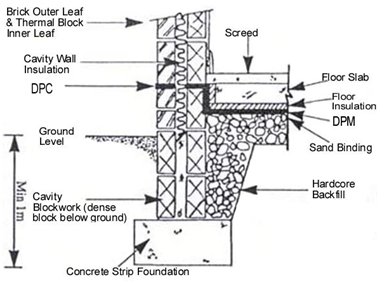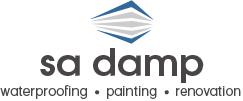Damp Proofing Services
You are here: Home » Damp Proofing Services
Damp Proofing Specialist Contractor in Johannesburg, Pretoria and Cape Town

THE BASICS
SA Damp has over 20 years experience in Damp Proofing within Johannesburg, Pretoria and Cape Town. We have many happy clients in the Commercial and Residential sectors who rely on our professional service and expertise. We will find the right solution to your damp problems.
We solve problems other companies cannot, that’s why we work with some of the biggest companies in South Africa, who rely on our expertise. If you are looking for a reliable company who stands by their guarantee, then SA Damp is the company to call with over 20 years experience in the business we will find the right solution for you.
DAMP PROOFING SERVICES
- Damp readings and assessments
- Residential damp proofing
- Industrial damp proofing
- Commercial damp proofing
- Maintenance contracts
- Damp proofing of internal/external walls and basements
- Damp proofing at Damp Proof Course (DPC) level
- Pressure, injection chemical damp course
- We offer a full service
- Up to 10 year guarantee
Contact us today for a FREE professional consultation.
Get a Free Quote Contact Us
Call us now on 011 467 7600 | 011 791 0925
If you want to know more, keep reading

Once damp has become a problem in your building, you may begin to notice the following physical defects. Be sure to Contact Us to arrange your free professional damp assessment.
Damp proofing is a material that resists the passage of water with no hydro-static pressure and waterproof as a treatment that resists the passage of water under pressure. Generally damp proofing keeps moisture out of a building where vapor barriers keep interior moisture from getting into walls. Moisture resistance is not necessarily absolute: it is usually defined by a specific test method, limits, and engineering tolerances.
Damp proofing is accomplished several ways including:
- A damp-proof course (DPC) is a barrier through the structure by capillary action such as through a phenomenon known as rising damp. Rising damp is the effect of water rising from the ground into your property.The damp proof course may be horizontal or vertical.A DPC layer is usually laid below all masonry walls, regardless if the wall is a load bearing wall or a partition wall.
- A damp-proof membrane (DPM) is a membrane material applied to prevent moisture transmission. A common example is polyethylene sheeting laid under a concrete slab to prevent the concrete from gaining moisture through capillary action. A DPM may be used for the DPC.
- ¥Integral damp proofing in concrete involves adding materials to the concrete mix to make the concrete itself impermeable.
- Surface coating with thin water proof materials for resistance to non-pressurized moisture such as rain water or a coating of cement sprayed on such as shotcrete which can resist water under pressure.[3]
- Cavity wall construction, such as rainscreen construction, is where the interior walls are separated from the exterior walls by a cavity.
- Pressure grouting cracks and joints in masonry materials.[3]
Materials
Materials widely used for damp proofing include:
- Flexible materials like butyl rubber, hot bitumen, plastic sheets, bituminous felts, sheets of lead, copper, etc.
- Semi-rigid materials like mastic asphalt
- Rigid materials like impervious bricks, stones, slates, cement mortar or cement concrete painted with bitumen, etc.
- Stones
- Mortar with waterproofing compounds
- Coarse sand layers under floors
- Continuous plastic sheets under floors
Masonry construction
A DPC is a durable, impermeable material such as slate, felt paper, metal, plastic or special engineered bricks bedded into the mortar between two courses of bricks or blocks. It can often be seen as a thin line in the mortar near ground level. To create a continuous barrier, pieces of DPC or DPM may be sealed together. In addition, the DPC may be sealed to the DPM around the outside edges of the ground floor, completely sealing the inside of the building from the damp ground around it.
In a masonry cavity wall, there is usually a DPC in both the outer and inner wall. In the outer wall it is normally 150 millimetres (5.9 in) to 200 millimetres (7.9 in) above ground level (the height of 2-3 brick courses). This allows rain to form puddles and splash up off the ground, without saturating the wall above DPC level. The wall below the DPC may become saturated in rainy weather. The DPC in the inner wall is usually below floor level, (under a suspended timber floor structure), or, with a solid concrete floor, it is usually found immediately above the floor slab so that it can be linked to the DPM under the floor slab. This enables installation of skirting boards above floor level without fear of puncturing it. Alternatively, instead of fitting separate inner and outer DPCs, it is common in commercial housebuilding to use a one-piece length of rigid plastic, (albeit an angled section), which fits neatly across the cavity and slots into both walls (a cavity tray). This method requires the need for weep vents to enable rainwater ingress to drain from the cavities otherwise rising dampness could occur from above the DPC.
Concrete walls and floors
Concrete normally allows moisture to pass through so a vertical damp proof barrier. Barriers may be a coating or membrane applied to the exterior of the concrete. The coating may be asphalt, asphalt emulsion, a thinned asphalt called cutback asphalt, or a rubber polymer. Membranes are rubberized asphalt or epdm rubber. Rubberized products perform better because concrete sometimes develops cracks and the barrier does not crack with the concrete.
There are many solutions for dealing with dampness in existing buildings, the choice of which will largely be determined by the types of dampness that are affecting the building (e.g. rising damp, hygroscopic damp, condensation, penetrating damp etc…).
Damp proofing in construction is a type of moisture control applied to building walls and floors to prevent moisture from passing into the interior spaces. Damp problems are one of the most frequent problems encountered in homes.
SA Damp, an established damp proofing specialist in Johannesburg and Pretoria, provides premium quality damp proofing solutions in Johannesburg and the Pretoria area to the residential, industrial and commercial property sectors.
Our quality damp proofing materials, exceptional standards of service and professional team will guarantee that you receive the high standard of workmanship that you expect from a damp proofing specialist contractor.
We use the best products on the market along with over 20 years of experience. We have a close working relationship with our suppliers including, XYPEX, STONCOR and HERMETIC.
Contact us today for a FREE professional consultation.
Get a Free Quote Contact Us
Call us now on 011 467 7600 | 011 791 0925




